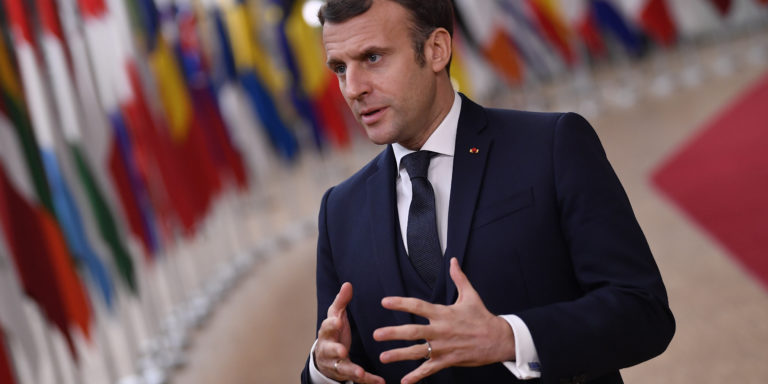INTELBRIEF
December 18, 2020
IntelBrief: France Struggles to Balance Principles with Actions at Home and Abroad

Bottom Line Up Front
- France is struggling to live up to its long-held principles as Paris deals with domestic unrest and a range of daunting foreign policy challenges.
- France seeks to pass highly controversial ‘Islamic separatism’ laws viewed by many as discriminatory toward France’s Muslim population.
- Domestically, France has dealt with frequent terrorist attacks perpetrated by jihadists, as well as protests from the ‘Yellow Vests’ movement and others related to proposed changes to France’s pension system.
- Lecturing citizens on the importance of ‘French values’ while honoring leaders like Egyptian President Abdel Fatah al-Sisi, widely perceived as violating human rights, is a glaring double standard.
The foundational principles of modern France, ‘Liberté, Egalité, Fraternite’ appeared during the French Revolution and remain a defining characteristic of the state. Yet, recently, France has struggled both at home and abroad to live up to these values as Paris deals with domestic unrest and foreign policy challenges. France has clashed openly with Turkey – and President Recep Tayyip Erdogan in particular - over foreign policy issues in Libya and the eastern Mediterranean. French President Emmanuel Macron has sought to counterbalance Ankara by relying more on Cairo, even honoring Egyptian President Abdel Fatah al-Sisi, widely accused of human rights violations, with the Grand Cross of the Legion of Honor, France’s most prestigious award. In short, French foreign policy seems to be at odds with what the government preaches domestically, as the government urges its citizens to adopt ‘French values’ while failing to live up to these values in its dealings with other countries. Under Macron, France has become more involved internationally, taking an active role in the war in Libya, the ongoing disputes in the eastern Mediterranean, and in countering terrorism throughout the Sahel and other parts of Africa. Macron’s reassertion of French identity and influence abroad also comes in the wake of Brexit and an opportunity for France to enhance its leadership status in the European Union.
Domestically, France has dealt with protests from the so-called ‘Yellow Vest’ movement, demonstrations related to efforts to overhaul the country’s pension system, and frequent terrorist attacks, as well as foiled attempts, tied to Salafi jihadist ideology. Just last week, French authorities also arrested several individuals in raids in Paris, Toulouse, and Dordogne and accused them with planning left-wing terrorist attacks. The leader of the left-wing cell had apparently traveled to Syria at one point to fight alongside Kurdish forces, raising further questions about the impact of foreign fighters returning home or relocating to third countries. As a whole, France is facing domestic instability from individuals and groups across the ideological spectrum, although without question the most significant threat was, and continues to be, the threat posed by Salafi jihadists. In several instances, the French government’s response to public unrest has generated further opprobrium. In late November, protests rocked the country following the government’s attempt to pass a new security law that would restrict the filming of police officers. Recent measures also included new laws making it illegal for anyone to threaten public sector employees online, effectively outlawing certain hate speech on social media. This new criminal offense was implemented in response to the killing of Samuel Paty, a school teacher who was beheaded by a violent extremist after showing controversial cartoons of the Prophet Muhammad to his students.
France has recently moved to pass ‘separatism’ laws that make it illegal for anyone to pressure France’s public servants to deviate from French secular values in favor of religious or ideological tenets. The law is highly controversial and is viewed by many as discriminatory toward France’s Muslim population, which at nearly 6 million is the largest in Europe and accounts for roughly 10 percent of the French population. The legislation is expected to be debated within the next few weeks in France’s parliament. French government officials and policymakers seek to implement measures that uphold the concept of laicite, which separates religion and the state. Many French political elites say this concept is being undermined by Muslims seeking to establish a parallel set of rules, in opposition to traditional French values. This viewpoint has currency with broader segments of the French population, and as Macron’s recent policy initiatives demonstrate, French domestic politics have veered further toward the right. Many Muslims find the laws to be a double standard, and feel that other religions, including Catholicism, would not be subject to the same policies.
The so-called ‘separatism’ legislation has been labeled by many domestic and international critics as draconian and counterproductive. In response, Erdogan was highly critical of Macron and even called upon other nations to boycott French goods. This is in stark contrast to further reporting about repression of Muslim communities elsewhere, in Xinjiang, for example. Sam Brownback, the U.S. envoy on international religious freedom, called the law ‘heavy handed.’ But many French lawmakers have described it as a law intended to protect France from encroaching religious fundamentalism. The law will deal directly with issues such as homeschooling, the registration of houses of worship with the state, and many other issues where French values are found to be at odds with religious practices. Yet, for France to be successful in assuaging many of the grievances inherent domestically, there should be a greater awareness of avoiding hypocrisy. Lecturing citizens on the importance of freedom while feting controversial leaders like Sisi in order to help achieve foreign policy objectives is a glaring double standard.